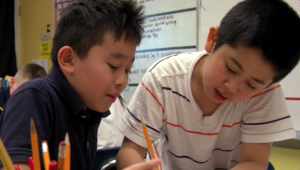

Reflections from the Classroom: Students as Agents of Their Learning
Math specialist Rachel Goldner describes working towards her goal: "students [who] look less often at me for assurance, correct answers and approaches and...instead look within themselves for how to solve problems."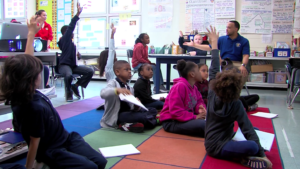

Developing an Equitable Math Learning Community from Day 1
Establishing and maintaining an equitable math learning community requires explicit attention, careful planning, and hard work, from the beginning of the school year.

A New Class, A New Year: The Role of Classroom Agreements
A critical component of a community where every student feels like they belong is the development of classroom agreements.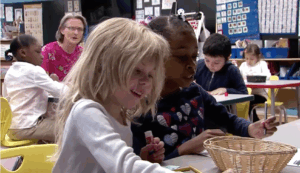

A Space for All of Us: Setting Up the Classroom
How can the design of a room promote the distribution of math authority, equitable participation, and respect for different learners? How can it ensure that students see themselves, feel welcome, and understand that this will be a joint undertaking?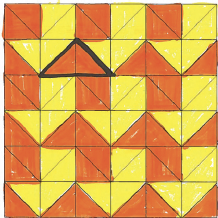

Quilts: Connecting Math, Art, and Communities in the Primary Grades
Students investigate features of shape as they learn about quilts and quilters and as they make their own paper quilts.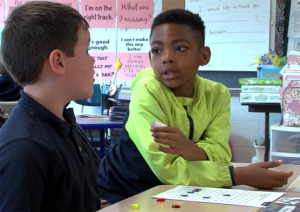

Math Workshop: A Structure that Supports Equity in the Elementary Math Classroom
Math Workshop can foster the development of an equitable learning community. When it is structured to foster independence and encourage students in taking responsibility for their own learning and the learning of others, it can also the development of mathematical identity and agency.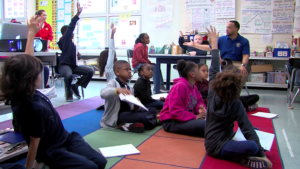

Discussions: A Structure that Supports Equity in the Elementary Math Classroom
Whole-class discussions are an essential feature of the elementary math classroom [and so] it is important to think about and plan for how to make participation in such discussions equitable and how to establish an environment where students share their thinking and listen thoughtfully to the ideas of others.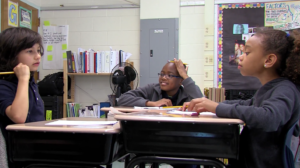

A Tool to Support Equitable Participation in Small Group and Pair Work
“Understanding what it means to ‘be a good partner,’ and how to make space for each person’s ideas, are important aspects of an equitable learning community.” ... But how to ensure that all students are positioned and seen as thinkers and doers of math during partner work?